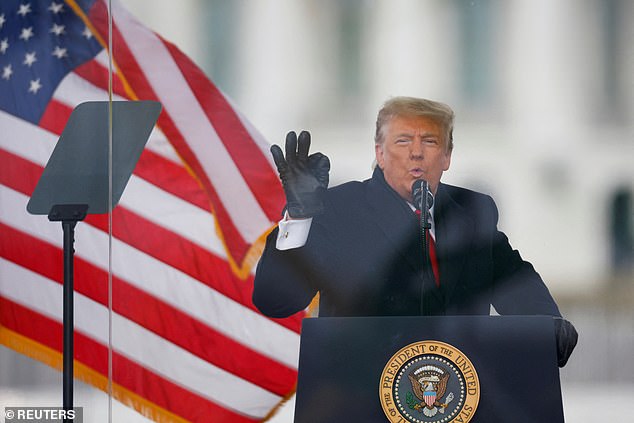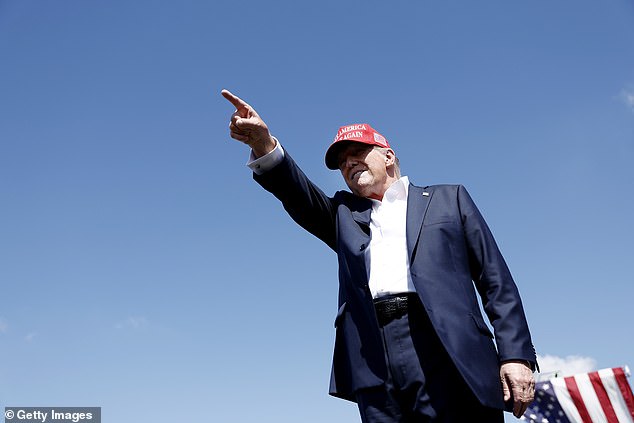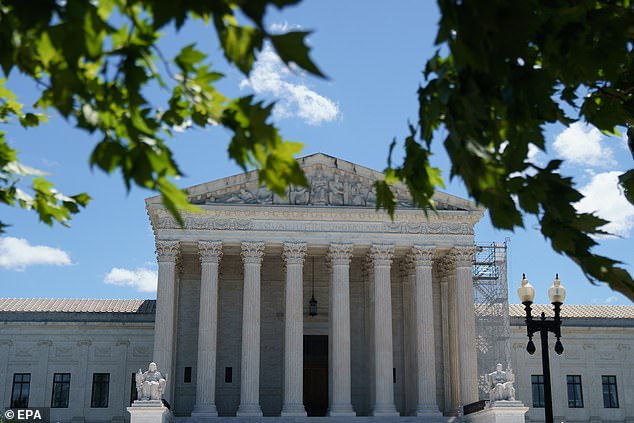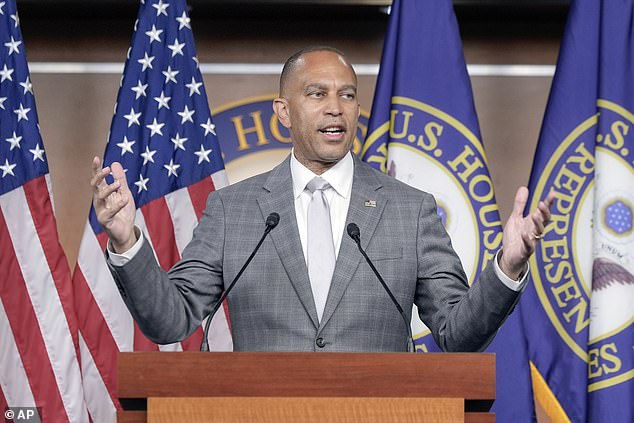Squad leader Rep. Alexandria Ocasio-Cortez said she plans to remove all six conservative Supreme Court justices over their ruling in Donald Trump’s presidential immunity case.
The Supreme Court’s 6-3 conservative majority ruled Monday that a president has immunity from criminal prosecution for official acts in a landmark decision.
The ruling returns the decision on whether Trump intentionally tried to subvert the results of the 2020 election to a judge in Washington, D.C., and will likely delay the trial until after the November election in a “big win” for the former president.
Reacting to the ruling, an outraged Ocasio-Cortez wrote on X: “The Supreme Court has been consumed by a corruption crisis beyond its control. ‘Today’s ruling represents an attack on American democracy.'”
“It is up to Congress to defend our nation from this authoritarian capture,” his post continued.
Rep. Alexandria Ocasio-Cortez, D-N.Y., posted on X Monday that she will soon file articles of impeachment against the Supreme Court justices after they ruled that Donald Trump has presidential immunity for a case related to the Jan. 6 Capitol riot.
The House will reconvene on Monday, July 8, after a recess on July 4, when it plans to take action.
His post did not specify which judges he plans to draft articles of impeachment for, but is expected to focus on the six conservative justices.
Monday’s ruling means that if Trump wins the November election he can order the Justice Department to drop the charges against him, dealing a blow to those who want to see him convicted for his role in the Jan. 6 riots.
The case centers on the former president’s alleged actions on January 6 to annul the election results.
Prosecutors have argued that Trump was acting as a candidate, and not in his official capacity, when he addressed the audience.
Meanwhile, the former president’s lawyers argue that Trump was conducting official presidential business, which under the new Supreme Court ruling is protected by presidential immunity.
Trump himself celebrated the ruling on Monday, posting on his Truth Social app: “Big win for our Constitution and Democracy. Proud to be an American!”

U.S. President Donald Trump gestures as he speaks during a rally to challenge the certification of the 2020 U.S. presidential election results by the U.S. Congress, in Washington, U.S., January 6, 2021.

Trump called the Supreme Court ruling a “great victory for our Constitution and democracy.”

The US Supreme Court ruled on Monday that former US President Donald Trump is entitled to immunity from prosecution in the context of his official acts.
And even if AOC drafts articles to remove Supreme Court justices, they probably won’t get very far.
Republicans control the House and would presumably never agree to introduce articles of impeachment against Supreme Court justices.
But House Democratic Leader Hakeem Jeffries, D-N.Y., said his caucus will look at what they can do about the ruling.
“Today’s Supreme Court decision to grant legal immunity to a former president for crimes committed using his official power sets a dangerous precedent for the future of our nation,” he said in a statement Monday.
‘The framers of the Constitution envisioned a democracy governed by the rule of law and the consent of the American people. They did not intend for our nation to be ruled by a king or monarch who could act with absolute impunity.’
‘House Democrats will engage in aggressive legislative and oversight activity regarding the Supreme Court to ensure that the far-right justices in the majority comply with the Constitution.’

House Minority Leader Hakeem Jeffries, D-N.Y., said Democrats will seek oversight of the Supreme Court after the ruling.
However, it is not yet clear what legislation and control can be brought to bear against the court.
If the leader of the progressive squad removes some or all of the judges, it would be the first time in about 220 years.
The only time a judge was impeached was in 1804, when Samuel Chase was accused of refusing to remove biased juries and excluding witnesses in two politically charged cases.
Chase was later acquitted by the Senate in 1805 and was not removed from the Supreme Court.

